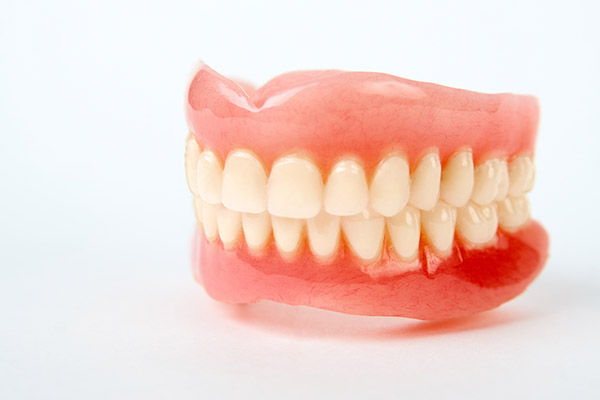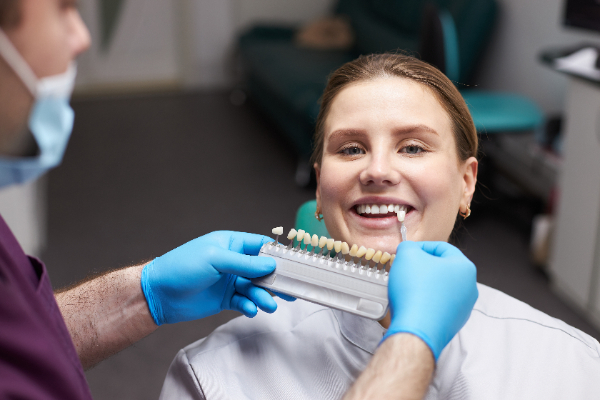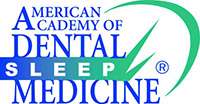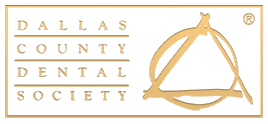Foods To Avoid if You Have Dentures

Replacing missing teeth with dentures restores much of their functionality. However, dental appliances are limited in what they can do compared to natural teeth. While you should be able to return to eating many of the foods that you enjoyed before you lost your teeth, some could cause problems for you. You should avoid eating them if possible or at least limit your consumption.
What foods should you avoid after getting dentures?
Generally speaking, you should avoid any food that can damage your dentures, force them to move around in your mouth, or cause you discomfort by getting stuck underneath them.
Tough meat
Tough meats, such as steak, often require you to chew your food very hard and for much longer than you would otherwise. This can destabilize the teeth in your dentures, causing them to become loose, or dislodge them completely. It can also cause the acrylic arches to shift around on your jaw, potentially irritating your gums. If you have to eat steak, cut it up into bite-sized pieces to make it easier to chew.
Sticky candy
Since candy is high in sugar, you should avoid eating it as much as possible to keep your mouth healthy. However, if you have false teeth, you should particularly avoid sticky candies such as caramels, toffees, and gummies. It is even harder to remove sticky candy from dentures as it is natural teeth.
Coffee
Drinking coffee does not affect the function of your false teeth nor does it cause any structural damage. However, it can cause staining, which may be more noticeable than it would be for natural teeth. Routine cleaning and polishing can help prevent stains, but there is no way to whiten a denture tooth once it has become severely discolored.
Crunchy foods
Hard, crunchy foods put pressure on your teeth while you are chewing. This can cause them to come loose or become damaged. Apples, carrot sticks, and corn on the cob are all examples of hard foods that you should avoid. Nuts are particularly problematic because it is virtually impossible to divide them equally on both sides of your mouth while chewing, and the uneven pressure applied can cause the dentures to pop off on one side.
Food with small pieces
Small pieces of food are difficult to grind up between your dentures and can also get stuck underneath, which can be very irritating. Popcorn is an example of food to avoid because the hulls are notorious for getting stuck under false teeth and causing discomfort. Not only that, if you accidentally bite down on an unpopped kernel, it is very hard and can cause worse damage.
Some seeds can also lead to this issue. Sesame seeds, flax seeds, and sunflower seeds are very small and are easily trapped in tight spaces. Keep in mind that you can find many of these ingredients in certain whole-grain bread, bagels, and crackers. Foods that contain whole seeds should be avoided.
What foods can you eat instead?
For almost every food that you should avoid with dentures, there is a similar one that you can substitute:
- Pot roast or brisket instead of steak
- Banana bread or cupcakes instead of candy
- Green tea instead of coffee
- Cooked vegetables instead of raw
- Hummus instead of nuts
- Veggie chips instead of popcorn
- Corn off the cob instead of on the cob
In addition, it can be helpful to cut your food into bite-sized pieces whenever possible, resulting in less pressure and force when you chew. This will allow you to eat a more nutritious and varied diet without putting your dentures at risk for unnecessary damage.
After a meal or snack, it is a good idea to remove and rinse your dentures as soon as possible, even if you only ate soft foods. This can help prevent food particles from getting trapped between the appliances and your gums, which could result in irritation, bad breath, and a poor fit. Be sure to clean your dentures thoroughly every night and store them as directed by your dentist.
Conclusion
Avoid foods that can damage your dentures or cause staining and discomfort. Otherwise, you should be able to return to eating many of the foods you ate before your tooth loss with your new dental appliances. Regardless of what you include in your diet, remember to keep your dentures clean and well cared for. If denture damage does occur, see your dentist right away.
Request an appointment here: https://stonecanyondental.com or call Stone Canyon Dental at (972) 996-3191 for an appointment in our Sunnyvale office.
Check out what others are saying about our dental services on Yelp: Dentures and Partial Dentures in Sunnyvale, TX.
Recent Posts
Are you considering getting dentures? Read on to learn more about denture maintenance. Owning dentures comes with a fair share of responsibility, such as their care and maintenance. The following are some essential tips to help your appliance last as long as possible.Dentures may return a lot of normalcy to your life, but they can…
People who wear dentures typically have the same complaints. Although the types of dentures made today are fantastic compared to those from years ago, issues can still arise.The biggest concerns are slippage, discomfort, poor fit, and bad breath. The bad breath problem is often how others know when a person is wearing dentures.Along with big…
When you have dentures, you no longer have to hide your smile or avoid being around other people. This treatment can also improve your oral health and allow you to eat a wider range of foods.Of course, wearing this apparatus does not let you eat anything. There are still certain foods you should avoid, so…
You might think dentures are only for seniors, but it is possible to need them sooner. Tooth loss does not happen immediately, so you might not need dentures right away.But there are a few signs that suggest it may be time to invest in a new smile. Keep reading to learn more about these signs.If…







